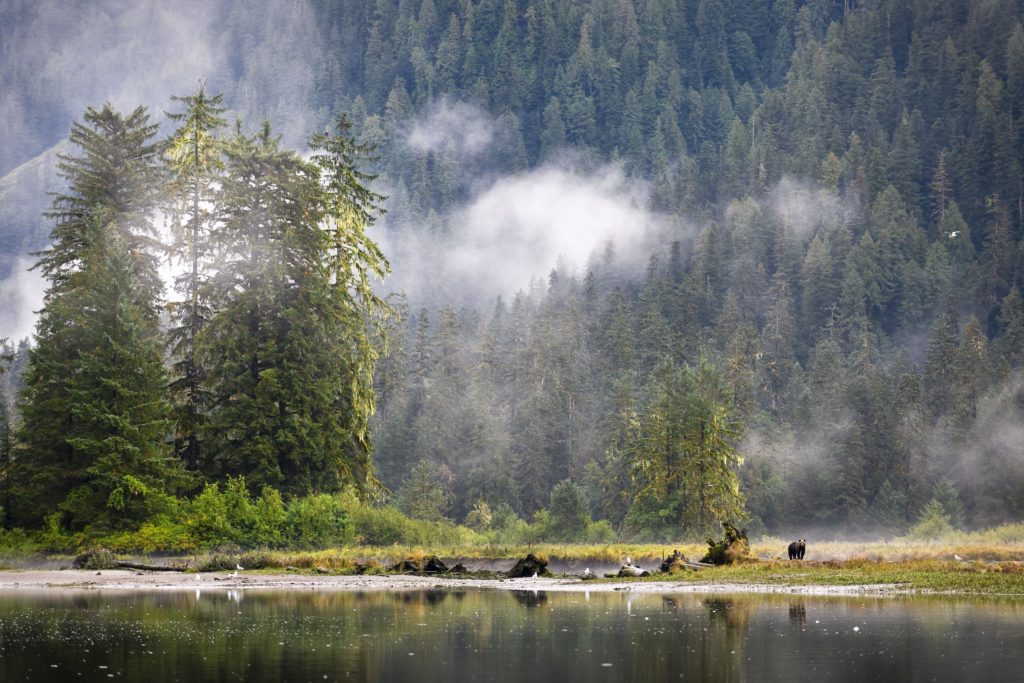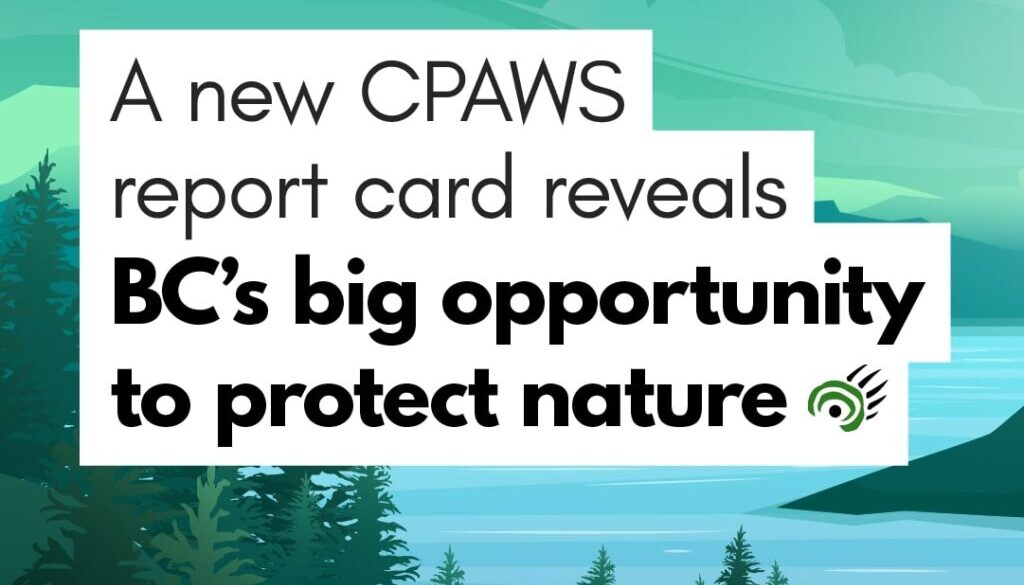British Columbia can restore its status as a global leader in conservation: here’s how
For interviews, please contact:
Jessie Corey, Terrestrial Conservation Manager
Canadian Parks and Wilderness Society – British Columbia
Jessie@cpawsbc.org
(604) 685-7445 x25
FOR IMMEDIATE RELEASE
June 22, 2021
British Columbia can restore its status as a global leader in conservation: here’s how
Committing to international protected area targets and championing Indigenous-led conservation are key to saving nature, a new CPAWS report card reveals
Unceded Coast Salish Territory / Vancouver, BC – An inaugural report card from the Canadian Parks and Wilderness Society (CPAWS) highlights limited progress on conservation in British Columbia over the last decade, but paves a way forward for the province to mitigate species extinction and its biodiversity crisis.
“With wildlife populations plummeting and biodiversity loss at its worst, the BC government has a huge opportunity to lead true change for nature,” says Jessie Corey, Terrestrial Conservation Manager at CPAWS-BC. “This has to begin with a promise to take action now and support First Nations and others working to permanently protect BC’s wildlife and ecosystems. The clock is ticking.”
The report card highlights that only one percent of BC has been added to its protected area system in the last 10 years, earning the province a C grade for its slow progress in safeguarding land and inland waters. In contrast, role model provinces like Québec received grades as high as an A- for making real progress towards the 2020 protection targets, capitalizing on federal conservation funding, and supporting conservation initiatives led by First Nations.
“It’s been proven, time and time again, that Indigenous leadership drives successful land protection,” says Annita Mcphee, Executive Director of CPAWS-BC. “Provincial commitments to reconciliation and to protecting land, air and water are instrumental in the fight against climate change. This is a golden opportunity for Indigenous communities to finally get the support and resources they need to advance important conservation initiatives across the province.”
In addition to grading each province and territory, the report card also applauds the federal government for its leadership and commitment to bringing First Nations, provinces, and territories together to tackle the global biodiversity crisis. Significant budget commitments made by the federal government in 2018 and again in 2021 have created the space to make real progress in protecting more of our lands and waters. This overarching federal support sets BC up well to re-establish itself within the global conservation space.
How BC can improve its grade
- Prioritize nature by committing to protect 25 percent of BC by 2025. With multiple in-progress conservation initiatives such as Dene K’éh Kusān—which totals 40,000 km2 or 4 percent of BC’s land base that could be protected—this global land protection goal is fully achievable if the BC government promises to put nature first.
- Support Indigenous-led conservation initiatives. In the last decade, 70 percent of BC’s new protected lands came from The Great Bear Rainforest Agreement, a collaboration between First Nations and the BC Government. Supporting Indigenous-led initiatives in the future will promote reconciliation with Indigenous communities and aid the recovery of species at risk.
- Don’t cut corners by counting OECMs towards protected area targets. Currently, BC reports 4 percent of its landbase under Other Effective Area-based Conservation Measure (OECM) designations. While some of these areas meet agreed-upon IUCN and Canadian standards, many do not. In the future, protected areas—designations that conserve nature when well-managed and designed—should be BC’s core conservation tool when working towards protection targets.
— 30 —
For more information, or to arrange an interview, please contact:
Jessie Corey
Terrestrial Conservation Manager, CPAWS-BC
jessie@cpawsbc.org
(604) 685-7445 x 25
The Grades Are In: A Report Card On Canada’s Progress in Protecting its Land and Ocean (PDF)

About CPAWS-BC
The Canadian Parks and Wilderness Society (CPAWS) is Canada’s only nationwide charity dedicated solely to the protection of our public land, ocean, and freshwater, and ensuring our parks and protected areas are managed to protect nature. Since 1963, CPAWS has played a leading role in protecting over half a million square kilometers. Our vision is to protect at least half of Canada’s public land and water in a framework of reconciliation – for the benefit of wildlife and people.
The CPAWS British Columbia chapter (CPAWS-BC) works to protect wilderness in every corner of BC and deep into the ocean. We have been defending BC since 1978, and are dedicated to keeping BC’s natural environment thriving forever. Nature is BC’s best hope.

